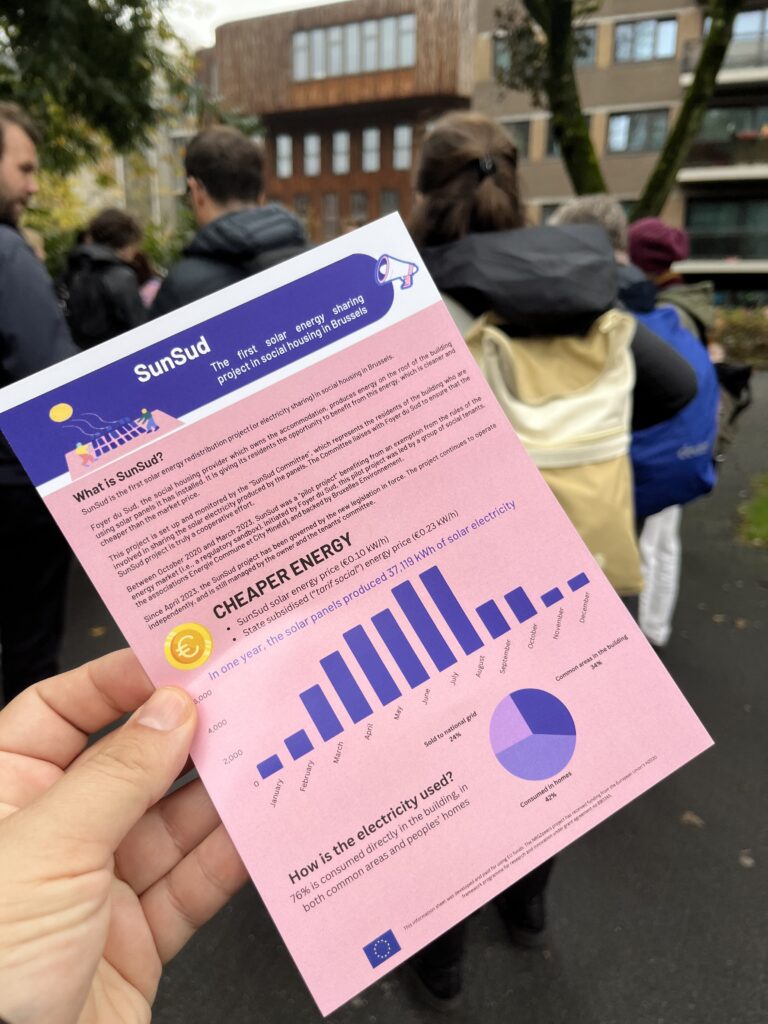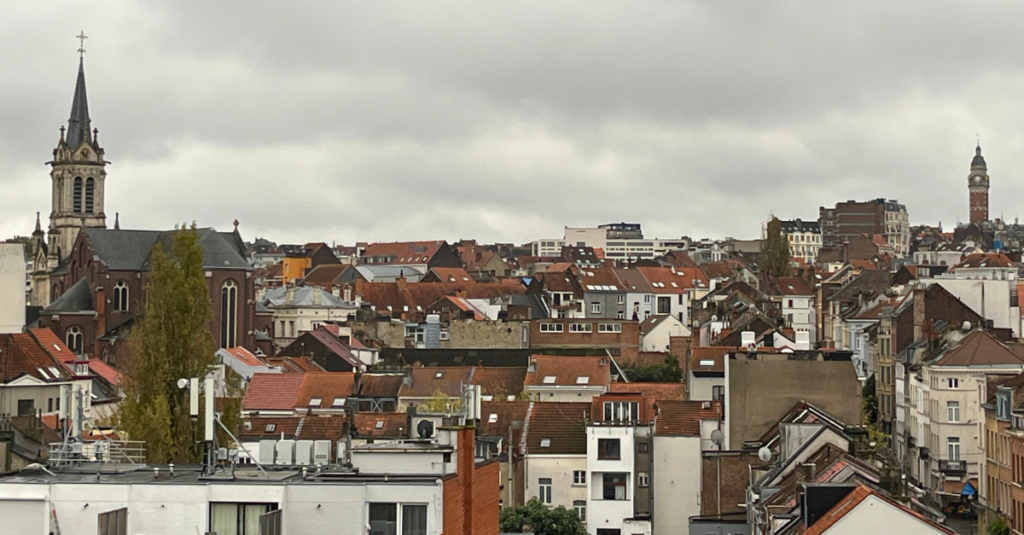On 25th October the RESCHOOL project visited the Sunsud energy community in Brussels in conjunction with the RE-energising Europe Conference. The visit was organised by Dara Turnbull from Housing Europe.
SunSud is the first solar energy redistribution project in social housing and it was set up in a building of 110 social housing units in Brussels. The project generates energy on the roof of the building using solar panels it has installed there. It gives its inhabitants the opportunity to benefit from this energy that is cleaner and less expensive than that of the market. The project continues autonomously and is still managed by the owner and the tenant committee.

How it works?
The principle is to share excess electricity from a photovoltaic installation with users who are located close to it (same building, same neighbourhood, same city, etc.). The project was initiated December 2020 with the installation, on the roof of the building, of around a hundred solar panels purchased by Foyer du Sud, a public service real estate company. The production of renewable electricity from these solar panels supplied two common meters connected to the elevator and the boiler room. However, such a large installation produces much more electricity than these common meters need. This production surplus can be shared between the residents of the building. This is called electricity sharing. Participating tenants sign a contract with Foyer du Sud and benefit from a smart meter, an essential tool for measuring the production and consumption of electricity produced by the panels. Concretely, tenants use this electricity during the day when the panels produce abundantly but keep their contracts with their electricity suppliers to cover consumption at night or on days with little sunshine.
Participation in sharing is on a voluntary basis. When the project started, 16 households out of 110 participated in the project.

What are the advantages of such a project?
Such an Energy community setup has environmental, social, and economic benefits:
Environmental benefits:
The possibility of sharing surplus production with tenants was the motivation to invest in a solar installation. The project also has the effect of increasing the production of renewable energy and thus reducing greenhouse gas emissions.
Social benefits:
This type of project, thanks to its collective dimension, contributes to social cohesion within the building. Furthermore, by offering cheaper electricity at a stable price, the project contributes to the fight against energy poverty.
Economic benefits:
The project will benefit all tenants thanks to a reduction in charges for the common areas of the building, partially powered by the electricity produced on the roof. The surplus electricity which is generated is sold to tenants at a much lower rate than that offered by the official suppliers. It also offers the tenants long-term price stability. In fact, the price of electricity produced by solar panels does not depend on the international situation, unlike electricity purchased by suppliers.

Implications?
This is the first time that an electricity sharing project has included social tenants in Belgium. In a context of social fragility and energy insecurity, the aim was to test the extent to which this new mechanism for redistributing green, local, and cheaper energy can bring economic, ecological and social added value.

